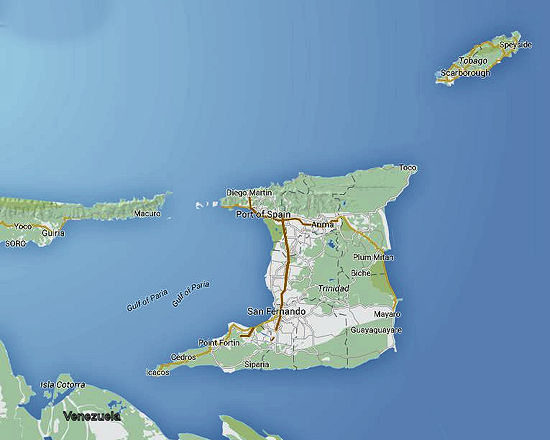 |
Ilka Hilton-Clarke |
||
A Brief History of Trinidad and TobagoTrinidad became one of the major sugar colonies in the British West Indies until the abolition of slavery in 1836. Indentured labour was substituted, with the arrival of East Indian workers in 1845. But British West India, struggling to compete with larger, more productive colonies such as Cuba, became unprofitable by the 1890's. By this time, the island was found to have considerable oil resources, and the first well was established in south Trinidad in 1869. Administratively, Trinidad, like all other colonies, was overseen by specially appointed governors who presided over a local legislature. In 1898, Trinidad was unified with Tobago to form a single colony. The establishment of labour unions in the 1930's, the creation of universal suffrage in the 1940's and the formation of the People's National Movement (PNM) in 1956, preceded the granting of Independence from Great Britain on August 31, 1962. Dr. Eric Williams served as the country's first Prime Minister, and lead the P.N.M. ( People's National Movement )party to three consecutive general elections victories. The last of these was in 1976, the same year that Trinidad and Tobago became a Republic on August 1. Ellis Clarke became the first President, superceding Sir Solomon Hochoy - the last Governor-General.. During this period, Trinidad and Tobago was in the midst of an economic boom generated by high world oil prices. Williams died on March 28, 1981 and was succeeded by George Chambers, who led the PNM to its biggest ever margin victory in the general elections later on that year. But the Chambers government struggled amidst the collapse of the "oil boom" and the tide turned when the PNM was swept out of office in the 1986 elections by the National Alliance for Reconstruction, led by A.N.R. Robinson. Unfortunately, Robinson was faced with the task of having to put measures in place to offset the effects of the flagging economy. He was severely criticised for going to the IMF to gain a loan, as well as for the imposition of Value Added Tax (VAT). The PNM, now led by Patrick Manning, swept back into power in the 1991 elections. Manning's period in office saw the tremendous growth of the business sector and the initial attempts at attracting foreign investment. However, continuing economic problems affected the popularity of Manning's PNM, and his government was edged out of power by the United National Congress (UNC) with its leader, Basdeo Panday, being installed as Trinidad and Tobago's fifth Prime Minister. Panday's government continued the policy of attracting foreign investment, with positive effects finally becoming apparent in mid-1997. However,allegations of corruption eventually dogged Panday's administration,
with the chief focus falling on the construction of the new terminal
at the Piarco International Airport. There was also criticism of attempts
to muzzle the media. Nevertheless, the UNC managed another narrow victory
during the 2000 general elections, winning 19 electoral seats to the
PNM's 17 with the NAR, just nine years after serving as the ruling party,
reduced to a solitary seat. Allegations of voter-padding and further
questions surrounding corruption forced Panday to call a snap-election
just one year into his second term. This time the UNC and the PNM became
split at 18 seats each. The responsibility of choosing a Prime Minister
to form a new government fell to President Arthur N.R. Robinson, who
decided to go with Patrick Manning - a controversial choice that has
resulted in the UNC refusing to take up its position in Parliament:
the party instead calling for a return to the polls in order to settle
the issue. The issue was still unresolved up to March 2002.
|
|||
|
history | dictionary | pictures trinidad | pictures tobago | snakes | flu | tips | ali in trinidad | rum and coca cola | |
|||
©2015 Ilka Hilton-Clarke - all rights reserved - -Last updated:
January 1, 2016
|
|||

